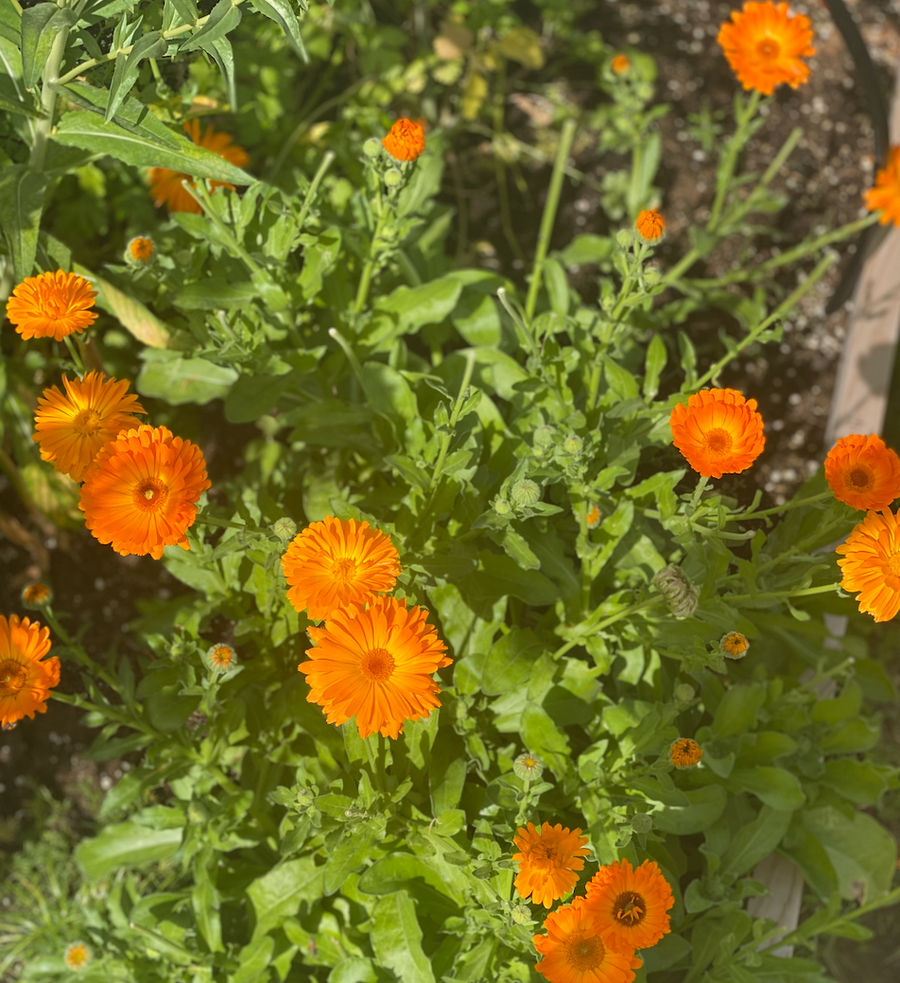Everyday medicine begins where food is prepared. The kitchen is the first apothecary, the place where daily nourishment and rhythm support the body’s natural ability to heal and adapt. What we cook and eat each day shapes how we respond to stress, regulate inflammation, and maintain balance through the seasons.
In the traditional medical systems of the Mediterranean and Islamic world, health was understood as harmony between the body and the elements of nature. The physicians of these systems described four humours: blood, phlegm, yellow bile, and black bile. Each reflect one of the elements: air, water, fire, and earth. Every person carries a unique balance of these humours, known as their mizaj, or temperament. Balance sustains vitality and emotional steadiness; disturbance creates fatigue, inflammation, and emotional strain.
Though framed differently, this ancient model parallels what we now understand about homeostasis: the body’s capacity to maintain internal equilibrium. The humours represented qualities that today we might describe as metabolic, inflammatory, or hormonal states. Fire, for example, governs transformation and digestion, concepts that align closely with enzyme function and gut metabolism.
Food was seen as the most immediate way to preserve this equilibrium. The temperature, texture and flavour of each ingredient influenced how nourishment was digested, absorbed, and distributed. Herbs and spices were chosen for their ability to strengthen or moderate these processes. Aromatic plants such as cumin, coriander, and thyme supported movement in the digestive tract and stimulated secretions. Sour and bitter flavours enhanced liver detoxification and bile flow. Sweet and oily foods restored moisture and resilience in times of depletion.
This approach reflects what integrative nutrition now calls food as information: every meal communicates with our endocrine, immune, and nervous systems. The kitchen, when used intentionally, regulates inflammation, supports microbial diversity, and stabilises energy through the rhythm of eating and digesting.
Observation was, and still is, an essential diagnostic tool. Appetite, digestion, and mood reveal the body’s state each day. A sluggish appetite or bloating often points to low digestive fire - a sign of reduced stomach acid or enzyme activity. Agitation or restlessness after meals may indicate excessive heat or a heightened sympathetic response. Paying attention to these signals allows small corrections before imbalance develops into illness.
The Season of Fire
Fall brings cooler air, shorter days, and drier winds. The body begins to contract after the outward energy of summer, conserving warmth and strength. This is the season to tend the element of fire - the body’s ability to transform nourishment into vitality. Fire governs metabolism, circulation, and clarity of thought. When it is balanced, digestion feels light, energy is stable, and mood remains centred. When it weakens, fatigue, coldness, and sluggish digestion appear.
Supporting the digestive fire during fall is one of the simplest ways to prevent imbalance. Warm, cooked foods are easier to digest and help sustain internal heat. Soups, grains, and root vegetables provide grounding energy and maintain hydration in the dry air. Spices such as ginger, turmeric, cinnamon, and black pepper stimulate circulation, enhance insulin sensitivity, and promote a balanced inflammatory response. Culinary herbs like rosemary, sage, and thyme protect the respiratory tract and act as natural antimicrobials.
Consistency in meal timing and sleep helps regulate cortisol rhythms, which in turn supports healthy metabolism. Emotional steadiness also preserves internal warmth. Chronic stress and anger disperse energy and disrupt digestion, while gratitude and presence calm the vagus nerve and improve gastrointestinal function. Preparing and sharing food in a grounded way allows the nervous system to shift into rest-and-digest mode, where repair and assimilation occur most effectively.
Everyday medicine begins with this awareness as a daily practice of choosing warmth, nourishment and consistency. When we eat with attention to season and temperament, we participate in prevention rather than reaction.
As fall deepens, tending to fire means protecting both the digestive and emotional centres that sustain life. A balanced fire supports the immune system, sharpens clarity, and provides the warmth we draw upon through the colder months ahead.
Each time we prepare a meal with attention, choose herbs for their vitality, or pause long enough to eat with gratitude, we participate in medicine at its most foundational level. This is the essence of everyday medicine: care woven into the simple acts that sustain us.
References
Avicenna, The Canon of Medicine, Book I: "On the Temperaments and the Innate Heat."
Dr Erum Qureshi, "On the Four Humours: Rediscovering the Ancient Science of Balance in Modern Medicine" Forward to Health Blog, 2024.
Aviva Romm, Botanical Medicine for Women’s Health, Elsevier 2010.
Aviva Romm, The Adrenal Thyroid Revolution, HarperOne 2017.
Rosemary Gladstar, Herbal Recipes for Vibrant Health, Storey Publishing 2008.
Journal of Traditional and Complementary Medicine (2018): "The Role of Heat in the Digestive System."





